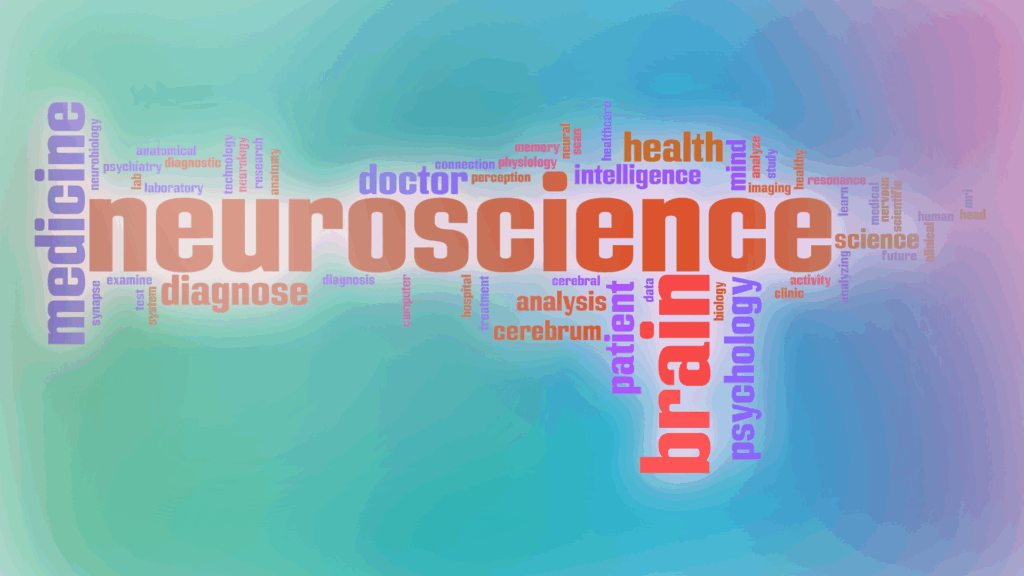Standing at the Crossroads: Neuroscience Coach vs Therapist
Choosing between a neuroscience coach vs therapist has become a pivotal decision for high-achieving professionals intent on meaningful growth. The distinction between these two paths is not merely academic; it shapes the outcomes, pace, and overall experience of personal transformation. While both disciplines aim to drive change, a neuroscience coach leverages cutting-edge brain science paired with the rigor that comes from dual PhDs and multiple master’s degrees. This level of education ensures their methods are anchored in research, not trends, offering clients tools for lasting, sustainable change. Many prospective clients find themselves puzzled by the differences, making an informed neuroscience coach vs therapist choice all the more critical. Every session with a neuroscience coach becomes an immersive partnership focused on optimizing the present and future, unlike therapy’s frequent introspection into the past. This forward-looking approach attracts ambitious individuals who value actionable strategies over lengthy explorations of history. Ultimately, the neuroscience coach vs therapist decision is about selecting the right fit for your aspirations, current state, and readiness for transformation.
Academic Rigor: Neuroscience Coach Credentials
The path to becoming a neuroscience coach with multiple advanced degrees is exceptionally demanding. Unlike many coaches who rely on basic certifications, a dual PhD neuroscience coach brings deep mastery honed through years of original research, complex clinical training, and published scholarship. Their curriculum covers neurobiology, advanced cognitive science, research methodologies, and behavioral psychology. This depth enables the neuroscience coach vs therapist comparison to favor coaching in terms of scientific perspective and the ability to apply complex, research-backed interventions. In contrast, typical therapy credentials require a single master’s degree, clinical hours, and licensing—a solid foundation, but rarely matching the breadth or complexity of dual doctoral education. Neuroscience coaches thus possess a richer toolkit and broader conceptual framework for understanding and optimizing human performance. Clients benefit from interventions informed by both scholarly research and hands-on experimentation, ensuring every technique is validated through rigorous evidence. When evaluating neuroscience coach vs therapist options, advanced education becomes a non-negotiable marker of competence, insight, and measurable results.

My Practice: MindLAB Neuroscience’s Proven Legacy
At MindLAB Neuroscience, the practice is defined by scientific rigor, bespoke client care, and decades of experience translating neuroscience into life-changing coaching. Founded and led by a dual PhD neuroscience coach, MindLAB has uniquely pioneered brain-based coaching for over 25 years, blending the most advanced research on neuroplasticity, cognitive psychology, and behavioral science into every session. Unlike typical approaches, every client receives a fully individualized program designed from scratch, guaranteeing results tailored to their challenges, goals, and neurocognitive profiles. This innovative model—grounded in peer-reviewed science—has repeatedly set the standard for lasting transformation and measurable results. MindLAB’s global reputation and sustained client outcomes speak to the lasting value of choosing a neuroscience coach vs therapist for those ready to accelerate personal and professional evolution
Fundamental Focus: Past vs Future
Therapy traditionally centers on exploring childhood experiences, and processing unresolved emotional wounds. The therapist’s expertise shines when guiding clients through psychological pain or restoring mental health stability. However, the neuroscience coach vs therapist paradigm shows coaching is distinct in its exclusive focus on future outcomes, goal achievement, and habit transformation. Whereas therapy often delves into history, neuroscience coaches orient sessions around what is possible, actionable, and transformative. This means little time spent reliving past events; instead, clients move rapidly toward breaking through mental plateaus and building high-performance behaviors. The neuroscience coach vs therapist difference is profound here: coaches facilitate change by activating neuroplasticity and goal-driven strategies. Sessions with a neuroscience coach energize clients, creating a momentum that enables rapid progress rather than slow, reflective restoration. For individuals who are ready to shift from recovery to thriving, neuroscience coaching delivers tangible, forward-thinking solutions.

How Therapists Operate: Clinical Safety in Restoration
Therapists working within clinical practice use methods like CBT, trauma-focused interventions, and relational therapy to diagnose and address mental health conditions. The regulated nature of therapy means therapists must adhere to strict boundaries, privacy laws, and support guidelines set by licensing boards. This structure ensures safety, clear documentation, and ongoing support for complex psychological needs. In the neuroscience coach vs therapist debate, therapists clearly excel at managing risk, conducting crisis interventions, and handling acute distress. Their focus is on restoring baseline wellbeing, sometimes over many months or years, and their hierarchical client approach guarantees a clear power dynamic. However, these restrictions can slow progress for clients who are already functioning well and want accelerated growth. By comparison, neuroscience coaches work beyond clinical support, creating dynamic partnerships that emphasize accountability, empowerment, and action rather than a strict, clinical approach.
Neuroscience Coaching Methodology: Strategies for Optimization
A neuroscience coach leverages advanced neuropsychological tools, activating neuroplasticity through deliberate brain training, cognitive reframing, and habit engineering. Their strategies are built upon published research, scientific experimentation, and personalized assessments that reflect the client’s unique neurocognitive profile. Unlike therapy, which may be slow and reflection-based, coaching focuses on implementation—using visualization, mental rehearsal, dopamine-aligned goal setting, and behavioral design to achieve rapid change. The neuroscience coach vs therapist distinction becomes clear when noticing the speed and effectiveness of brain-based interventions. Coaches teach clients how to build resilience, peak focus, and lasting motivation, all rooted in how the brain processes rewards and routines. Their methodology integrates neuroscientific principles into daily practice, ensuring every change is sustainable, measurable, and aligned with current science. This results-oriented approach makes neuroscience coaching the ideal choice for those seeking significant cognitive advancement and career growth.

Collaboration and Boundaries: When to Refer
Ethical neuroscience coaches recognize the importance of clinical boundaries and know when therapy is necessary, especially for trauma, depression, or acute instability. The neuroscience coach vs therapist comparison strengthens when both roles work collaboratively: therapists address foundational restoration, and coaches elevate performance. Many clients find value in engaging with both modalities, progressing from therapy’s stabilization into coaching’s high-level optimization. Neuroscience coaches respect psychological safety, never attempting to manage clinical conditions beyond their scope. Instead, they facilitate transformative change once clients have achieved mental health stability. The partnership between therapy and neuroscience coaching demonstrates holistic support, integrating clinical care with actionable brain-based methodologies. Ultimately, this collaborative dynamic maximizes outcomes, allowing clients to leverage the strengths of each professional as they advance through various stages of personal growth.
Customization: Tailored Brain-Based Solutions
Unlike the limited frameworks seen in therapy—which often rely on standardized protocols—neuroscience coaching at MindLAB is founded on total customization. Every program is hand-crafted to the unique neurocognitive pattern, behavioral profile, and personal history of the client, ensuring the chosen strategy matches both ambition and current capacity. Clients are empowered through a continuous feedback loop, rapidly iterating solutions until new neural pathways for focus, motivation, and happiness are built and sustained. This personalized approach maximizes the efficiency and impact of each session, often cutting months or years from the progress timeline. When comparing neuroscience coach vs therapist, the commitment to customization is a defining advantage.
How I Work: Brain-Based Coaching in Action
The process at MindLAB Neuroscience brings future-focused coaching methodology into every engagement, using actionable strategies that rewire neural pathways for lasting change. The journey begins with comprehensive brain-mapping and neurocognitive assessment, ensuring that each intervention matches the precise needs of the client. Unlike therapy’s frequent focus on digging through past trauma, MindLAB’s coaching prioritizes clear goal alignment, custom action planning, and regular progress measurements for continual improvement. Sessions mix neuroscience-backed exercises, behavior design, and cognitive priming, establishing new habits that stick far beyond the coaching engagement. This integrated structure sets the neuroscience coach vs therapist choice apart, offering dynamic support and real emotional shifts optimized for modern, ambitious professionals.

Regulatory Oversight: Therapist Restrictions vs Coaching Freedom
Therapists operate under state licenses, mandatory continuing education, and strict privacy regulations such as HIPAA. Their practice is geographically constrained, limiting continuity of care when clients move or travel, and must abide by insurance restrictions on session content or frequency. The neuroscience coach vs therapist landscape reveals coaching as more flexible: neuroscience coaches with advanced degrees can work internationally, customize session structures, and adapt programs to demanding lifestyles. This freedom appeals to executives and global professionals who need rapid, adaptable solutions. While coaching lacks governmental oversight, ethical practitioners prioritize transparency, accountability, and clear boundaries to protect clients’ wellbeing. Coaching sessions can be scheduled to suit travel, work, and project timelines, whereas therapy sessions follow regulated protocols. The contrast between rigid therapist requirements and flexible neuroscience coaching empowers clients with choices tailored to their needs.
Beyond Therapy: Real-World Impact of Neuroscience Coaching
Clients working with neuroscience coaches experience dramatic gains in productivity, cognitive agility, emotional regulation, and strategic decision-making. The neuroscience coach vs therapist advantage is most pronounced in the speed and sustainability of these changes—coaching interventions create new neural connections that deliver measurable progress in weeks instead of months. Neuroscience coaches provide ongoing assessments to track focus, motivation, and resilience, refining methods as clients evolve. Coaches use actionable tools like habit stacking, cognitive priming, and future-oriented goal setting to ensure outcomes are directly tied to brain science, not generic advice. As a result, professionals in demanding roles consistently report higher performance, satisfaction, and achievement after neuroscience coaching. The tangible nature of these results sets coaching apart as a transformational resource for those who demand real-world impact, not just emotional restoration.
Scientific Measurement: Tracking Lasting Success
Neuroscience coaching is distinguished by its use of scientific measurement to track and prove enduring change. At MindLAB, sophisticated tools—such as EEG analysis, neurocognitive assays, and behavioral tracking—are regularly used to objectively quantify shifts in brain activity, thought patterns, and emotional responses. Clients witness their transformation not just anecdotally but through solid, biometrically validated evidence. This level of precision provides regular calibration, ensuring every strategy is refined in real time for maximum results. No therapist or coach without a neuroscience background offers this scientifically grounded outcome, making the neuroscience coach vs therapist distinction clear for those seeking true accountability and permanent gains.
Relationship Dynamics: Partnership vs Clinical Hierarchy
Neuroscience coaches create partnerships founded on mutual respect, accountability, and shared expertise, empowering clients to direct their own transformation. Sessions are dynamic, energetic, and future-focused, contrasting sharply with therapy’s sometimes hierarchical, slow-paced explorations. This coaching relationship is built upon collaboration rather than authority, inviting the client to co-create solutions and sustain change. The neuroscience coach vs therapist difference shines in the empowerment that comes from being an equal partner rather than a passive recipient of clinical expertise. Coaches challenge clients to stretch beyond comfort zones, celebrate progress, and pivot strategies as needed to maintain momentum. The accountability structure drives continual growth, enabling clients to realize their potential in an environment that fosters innovation and self-efficacy. This results-oriented partnership is what makes neuroscience coaching especially appealing to ambitious, action-oriented professionals.
Pricing, Insurance, and Session Structure
Therapy is typically billed per session and often covered by health insurance, though insurance limitations may restrict scope, session length, or provider choice. Neuroscience coaches, given their high-level training and specialized expertise, command premium rates but offer customized packages designed for rapid, targeted results. Payment structures vary, from pay-per-session to comprehensive packages, providing clients with flexibility and predictability in cost. The neuroscience coach vs therapist contrast emerges in session frequency: therapy tends to be weekly and long-term; coaching can be short-term, intensive, and spaced to suit client schedules. This flexibility allows clients to optimize the time and investment devoted to personal development. Neuroscience coaching is an investment in accelerated transformation, often delivering results worth the premium rates charged. For many professionals, the return on investment is clear: enhanced performance, greater satisfaction, and transformative growth.

Recognizing Red Flags: Navigating the Landscape
Choosing an effective neuroscience coach vs therapist requires diligence in credential verification and boundary clarity. Red flags for therapists include lack of valid licensure, unwillingness to provide credentials, or inappropriate blending of social and clinical roles. In coaching, be wary of practitioners who claim therapy-level expertise without robust academic or scientific training. A competent neuroscience coach provides detailed credentials, shares success stories, and operates with clear limitations regarding trauma or clinical diagnoses. Therapy or coaching professions demand transparent communication about scope, approach, and outcome measurement. Ethical practitioners prioritize client safety, psychological wellbeing, and measurable progress. Prospective clients should always request references, confirm academic and practical credentials, and clarify expectations before committing. This vigilance ensures the neuroscience coach vs therapist choice delivers maximum value and protection.
Integration: Working With Both a Neuroscience Coach and Therapist
A growing number of clients now engage both a therapist and a neuroscience coach, recognizing each offers unique strengths in the journey from recovery to optimizing performance. Therapy stabilizes psychological health, preparing clients to take full advantage of the advanced strategies offered by a neuroscience coach. The neuroscience coach vs therapist model works best in sequence—begin clinically, transition to coaching, then maintain growth with targeted interventions. Both professionals often collaborate for continuity, maximizing the depth and breadth of results. Integration of therapy and coaching represents a next-level approach to comprehensive personal development, balancing emotional safety and transformative action. This flexible model adapts to changing needs and life phases. Ultimately, leveraging both ensures progress continues regardless of where a client is on their journey.

The Evolution: Neuroscience Coach vs Therapist
As neuroscience coaching matures—with more dual PhDs, advanced methodologies, and scientifically trained practitioners—the field is changing. Coaches now drive the frontier of human optimization, applying research and tools often unavailable in clinical therapy. Therapy remains indispensable for foundational restoration, but neuroscience coaching is the new gold standard for peak performance and measurable change. The neuroscientific approach redefines what’s possible, making innovative transformation accessible to anyone who is ready and motivated. The neuroscience coach vs therapist debate is evolving toward synergy and integration, recognizing both paths as essential for different stages. For individuals and organizations seeking a competitive edge, neuroscience coaching represents the future of brain-based personal and professional growth. Its rigorous academic underpinnings guarantee the highest level of effectiveness and trust.
Choosing a neuroscience coach vs therapist is a commitment to transformation, not just recovery. With the right expert—one molded by dual PhDs, multiple master’s degrees, and years of research—clients can achieve accelerated growth, lasting results, and genuine satisfaction. Trust your instincts, verify credentials, and select the approach that matches your readiness for bold change.
Enduring Transformation: The Results of True Neuroscience Coaching
The results clients achieve through the neuroscience-based modalities pioneered at MindLAB are both profound and enduring. Because coaching interventions are grounded in the science of neuroplasticity and tailored to the individual, clients experience lasting positive changes in thought, habit, emotion, and behavior. Unlike traditional coaching or therapy, which sometimes deliver only incremental progress, MindLAB’s neuroscience approach produces shifts that persist for years and often permanently reshape a client’s approach to challenge, leadership, and well-being. Case studies routinely highlight transformative professional growth, new levels of emotional regulation, and a marked acceleration in personal development—all attributed to precision-guided brain-based coaching. This enduring outcome underscores the lasting value of a neuroscience coach vs therapist for anyone seeking permanent betterment.
Read about real neuroscience-based coaching success stories:
Breaking Through Mental Plateaus – David Carter’s NeuroDrive Success Story
From Burnout to Peak Focus – Jessica Turner’s NeuroDrive Success
Breaking Through Barriers – My Journey to Love and Vulnerability
Invaluable Insight – Michael A.’s Leadership Transformation
From Power Struggles to Perfect Partnership – Aubrey O’Day’s Neuroscience Coaching Transformation
Win Win Outcome – Victoria W.’s Executive Transformation
Exceptional Self-Awareness – Dov Charney’s Journey to Profound Personal Growth
A New Life – Hanna Guttenberg Riverdale’s Liberation and Self-Discovery













